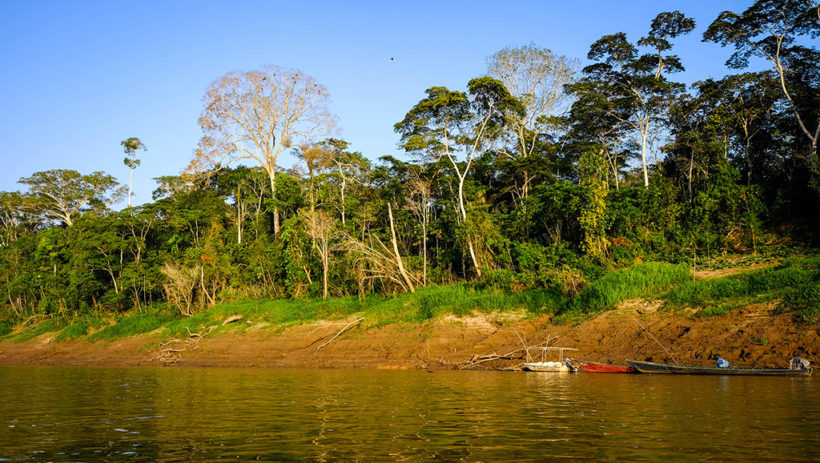11 Dec 2024

Tired Earth
By The Editorial Board

Deforestation caused by gold mining has increased by 90 % in the southwest of the Madre de Dios region, located in the eastern part of the Peruvian Amazon.
This is revealed by a scientific study that shows how mining activity went from generating 4 % of forest losses to 105 % in 19 years, from 1999 to 2018.
While agriculture continues to be the main cause of deforestation in this region, the indicators place gold mining as the second biggest cause.
In the last two decades alone (1999-2018) Madre de Dios has lost an average of almost 6,000 hectares per year to agriculture and gold mining, the study notes.
The report, entitled Dynamics of forest loss in the southeastern Peruvian Amazon, was published in the journal Ecosistemas, published by the Spanish Association of Terrestrial Ecology (AEET).
The study makes it clear that agriculture continues to be the main cause of deforestation in the Madre de Dios region, reaching 1,296.85 square kilometres deforested in 2018.
It also notes that agriculture accounts for more than 46% of forest loss compared to mining, with 27% in 2018.
However, it highlights the increased impact of gold mining on forest loss, which accounted for 401.78 square kilometres deforested and ranks it as the second cause.
They also note that the pressure of agriculture on forests has doubled, while mining has increased almost 7 times in 2018 compared to 2004.
They also state that mining has more than doubled the area of wastewater, from 154 square kilometres in 2009 to 400 square kilometres in 2018.
Thus, there has been a “more than 27-fold increase in the percentage of deforestation due to wastewater”, from 45% (2009-2014) to 125% (2014-2018), the study states.
The increase in deforestation due to gold mining is affecting the Tambopata National Reserve, a legally protected area and the most biodiverse place in the Amazon with the greatest biodiversity in the world, the study notes.
This research was carried out by a team of scientists from different departments of the National Amazonian University of Madre de Dios and the University of Barcelona.
It focused on studying the causes and dimensions of deforestation in an area of almost 3 million hectares distributed on both sides of the road that crosses the Amazonian region of Madre de Dios.
This region, located in the southeast of the Peruvian Amazon, has an area of approximately 9.5 million hectares and is considered the biodiversity capital of Peru.
However, in the last two decades (1999-2018) it is estimated to have lost an average of almost 6,000 hectares per year to agriculture and gold mining, according to the study.
This is mainly due to uncontrolled economic exploitation of forest resources for the conversion of forest into agricultural areas, especially monocultures.
As well as an increase in the emergence of grazing areas, road infrastructure, timber and mineral extraction, legal or illegal.
Source : pressenza.com
Comment